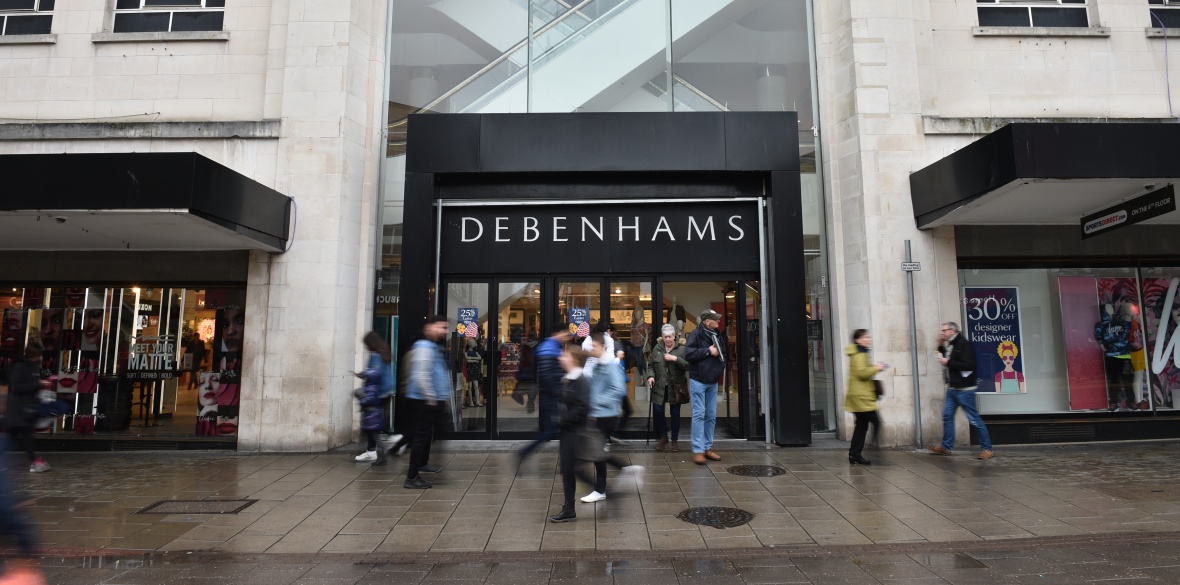BEING told: “Well, that's monopoly capitalism for you!” will give no comfort to Debenhams’ 25,000 employees, many of whose jobs remain in mortal danger.
But it’s the sad and unavoidable truth.
Britain’s banks, high street stores and edge-of-town supermarkets compete in a dog-eat-dog world, where the biggest and nastiest brutes devour those who falter and fall behind.
The workers in at least 50 of Debenhams 166 stores are earmarked for early closure as its creditors — which include Barclays, the Bank of Ireland and US hedge funds — take over the company and set about flogging its assets.
They could sell all or most of the business as a going concern, but Debenhams’ enormous pre-tax loss of more than £491 million last year make that a difficult prospect.
As far as the creditors are concerned, their primary objective is to recover their loans plus interest, plus any other profit that can be made. The interests of workers, shoppers and local communities will not feature in this prospectus at all.
Had Sports Direct’s Mike Ashley succeeded in turning his 30 per cent stake in Debenhams into dictatorial control after the resignation of its incompetent directors, it is unlikely that the fate of the workers there would have been much different. His purchase of House of Fraser last August provides the clue.
Back then, as a minority shareholder, he threatened to sue its failed executives and then purchased House of Fraser with £90m in cash on the same day that it went into administration.
Soon afterwards, he announced a fresh round of store closures, then reprieved most of them before closing five down over the Christmas and new year period.
He has rescued his shareholding stake, pumped money into the Fraser chain and saved thousands of jobs while sacrificing hundreds of others.
Had his takeover of Debenhams succeeded, or should he now buy its outlets in any fire-sale, the logic of capitalist market forces would compel him to carry out a major rationalisation of his expanded high street empire sooner or later — and that would mean yet more closures and more redundancies.
The same trend to monopolisation and rationalisation is an innate characteristic of capitalism. Governments, parliaments and their anti-monopoly and pro-competition laws and institutions can try to regulate it, assisted by all kinds of changes which bring down some giants and raise up others, but monopoly marches on.
For example, 10 retail companies now account for half of the total sales revenue of all the shops and stores in Britain. Four established supermarket chains (Tesco, Sainsbury’s, Asda and Morrisons) together with newcomer Amazon take more than one-third.
In almost every sector of the economy, from banking, pharmaceuticals and energy to steel, telecoms and the mass media, a handful of transnational corporations monopolise the so-called “free” market.
In fact, monopoly power is the single biggest threat not only to the interests of workers and their trade unions, but to social justice, electoral democracy and the future of our planet’s ecosystem.
It should not be left only to the Communist Party and its programme, Britain’s Road to Socialism, to devise a strategy for weakening, challenging and overthrowing monopoly capitalism’s rule.











